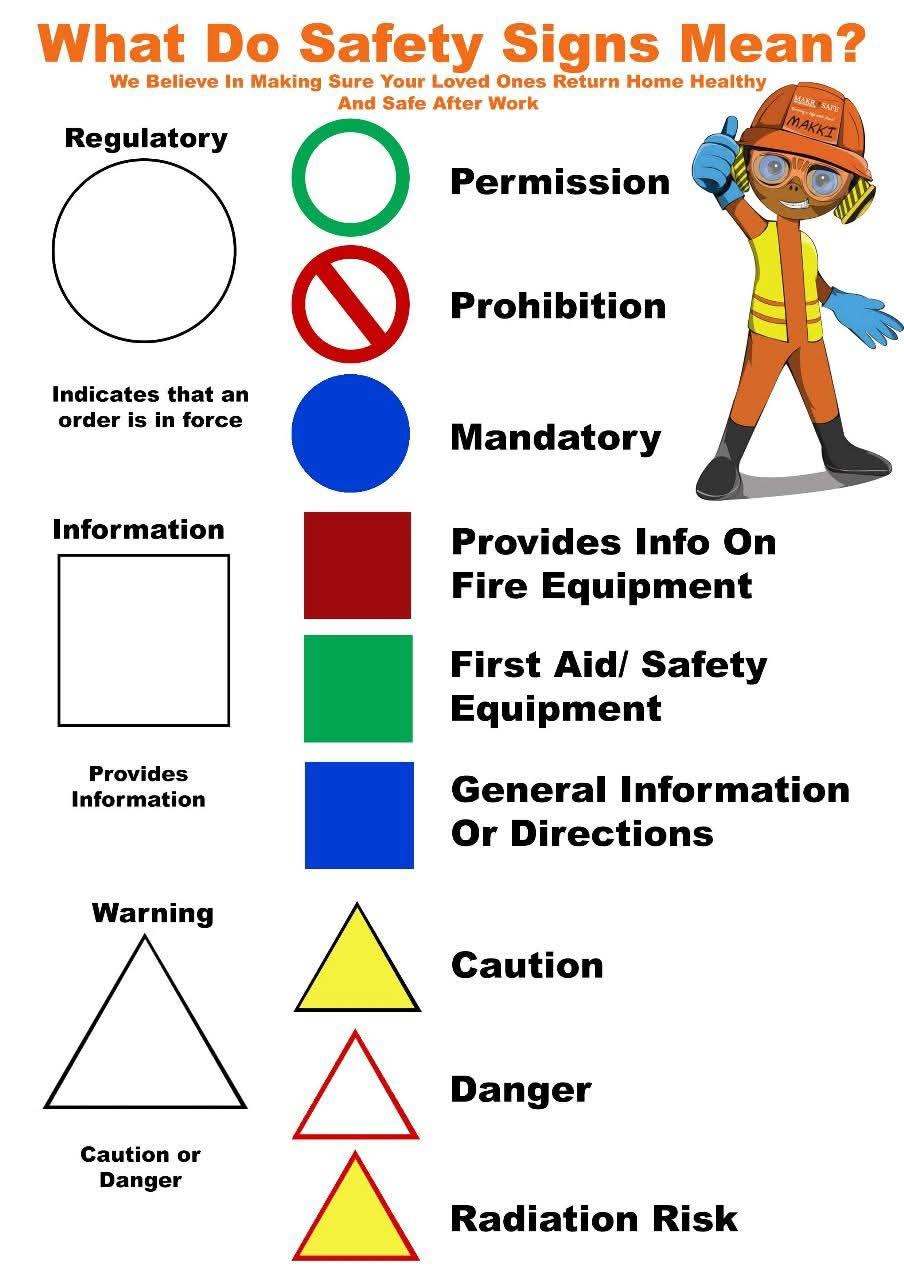Meaning of different safety signs
Meaning of different safety signs
The image you provided is a visual guide explaining the meaning of different safety signs using shapes and colors. Here's a detailed explanation and guidance on the use and interpretation of each safety sign type:
🔵 REGULATORY SIGNS (Circular)
These signs indicate that a rule or law is in force in a specific area.
1. Permission (Green Circle)
-
Meaning: Action is allowed or permitted.
-
Example: "Safety goggles may be removed in this area."
2. Prohibition (Red Circle with Slash)
-
Meaning: Something is not allowed or is forbidden.
-
Example: "No smoking," "Do not enter," "No mobile phones."
3. Mandatory (Solid Blue Circle)
-
Meaning: A specific action must be carried out.
-
Example: "Wear helmet," "Wear gloves," "Use ear protection."
⚪ INFORMATION SIGNS (Square or Rectangular)
These signs provide guidance without enforcing rules or actions.
1. White Square (Plain)
-
Meaning: General informational message.
-
Example: "Office this way," "Break area."
2. Red Square
-
Meaning: Indicates the location of fire equipment.
-
Example: "Fire extinguisher," "Fire alarm point."
3. Green Square
-
Meaning: Location of first aid or safety equipment.
-
Example: "First aid kit," "Emergency exit," "Eyewash station."
4. Blue Square
-
Meaning: General information or directions.
-
Example: "Cafeteria ahead," "Restrooms →."
🔺 WARNING SIGNS (Triangles)
These signs are shaped like triangles and warn about potential hazards.
1. Plain Triangle (Black Outline)
-
Meaning: General caution or danger alert.
-
Example: "Slippery floor," "Trip hazard."
2. Yellow Triangle (With black border)
-
Meaning: Caution – be aware of a non-immediate hazard.
-
Example: "Forklift operating area," "Low ceiling."
3. Red Triangle (With white fill)
-
Meaning: Danger – an immediate or high-risk hazard.
-
Example: "High voltage," "Toxic chemicals," "Explosive area."
4. Yellow Triangle (Red Border)
-
Meaning: Radiation risk – hazardous radiation present.
-
Example: "X-ray in use," "Nuclear material."
🦺 WHY THESE SIGNS MATTER
-
Compliance with safety laws and workplace standards.
-
Awareness of hazards to avoid injury or accidents.
-
Direction for safe practices and emergency responses.
-
Health and safety culture promotion.
✅ Best Practices for Use
-
Install at visible and relevant locations.
-
Ensure clarity and no visual obstructions.
-
Provide training to employees on sign meanings.
-
Conduct routine checks to maintain visibility and condition.
If you’d like, I can help you create a poster or training material based on this guide.


